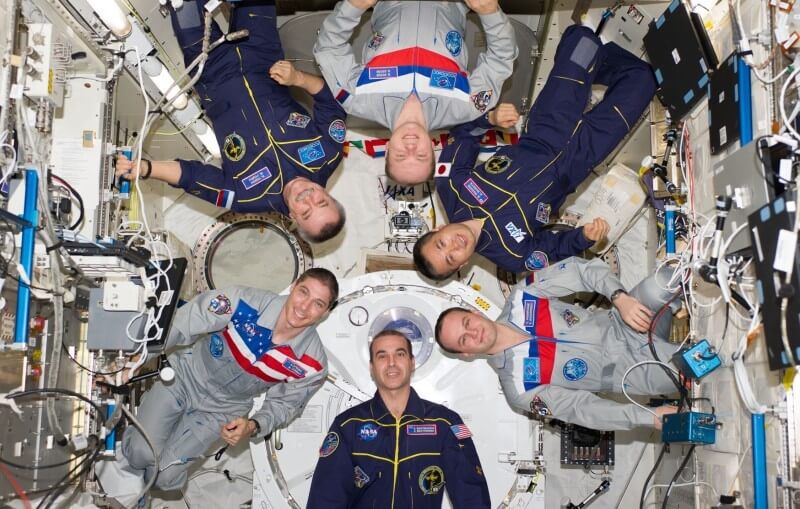- Get link
- X
- Other Apps

A new study shows that the so-called cosmic fever is not a myth. With a long time in microgravity, the body temperature can increase, and with physical exertion it increases even more. This conclusion was reached by German scientists who studied the physical characteristics of astronauts who were on board the International Space Station.
In general, an already huge list of health problems associated with being in space and facing the dream of long space travel can be added one more point.
At the same time, researchers note that the body temperature rises not instantaneously. The increase in this indicator can occur for several months, until the human body gets used to the conditions of missing gravity. About this, at least, say those data on the state of health, which were collected before the flight, while on the ISS, and after the return of the astronauts back to Earth.
Data show that after two and a half months of stay in orbit during exercise, the body temperature of astronauts regularly exceeds the figure of 40 degrees. At the same time, the average temperature is usually increased by 1 degree and is 37 degrees even when the astronaut does nothing.
"We have developed a new system that can take temperature readings from the skin with sensors that can detect even minor changes in arterial blood temperature," explains Hannes-Christian Gunga of the Charite Clinic in Berlin, one of the researchers in this project.
Despite the fact that physicians and scientists are already working on solving some problems associated with long space travel, actual studies of the effects of microgravity effects on the central body temperature, which is regulated on our Earth by our internal biological systems, were very few. At the same time, monitoring the temperature of the body in space is very important, especially if we want to someday go to other planets of the solar system. Ultimately, hyperthermia and heat stroke during flight to Mars are unlikely to be of any use to anyone.
In a new study, German scientists recorded temperature data from 11 astronauts, beginning to collect information 90 days before the flight and ending 30 days after returning. During this time, people wore sensitive sensors on their foreheads. These sensors have shown that the central temperature of the body in microgravity grows faster than on Earth. Scientists explain this by saying that the space environment prevents the correct operation of those factors that regulate body temperature in terrestrial conditions. For example, the level of heat emitted by us changes into the environment around us, as well as the amount of sweat our body releases to cool it. In addition, in space, sweat evaporates much more slowly, which, in turn, can become a problem with prolonged physical exertion, as the possibility of overheating increases.
"In conditions of zero gravity, it becomes very difficult for our bodies to get rid of excess heat. The lack of heat transfer between the body and the environment can be a real problem and lead to overheating, "says Gunga.
An increase in the average body temperature can be critical for our efficiency and well-being, scientists say. Numerous scientific studies show that the daily central temperature of a person in physical work should not exceed 38 degrees.
The results of recent research scientists shared in the journal Nature.
The article is based on materials .
- Get link
- X
- Other Apps
Comments
Post a Comment